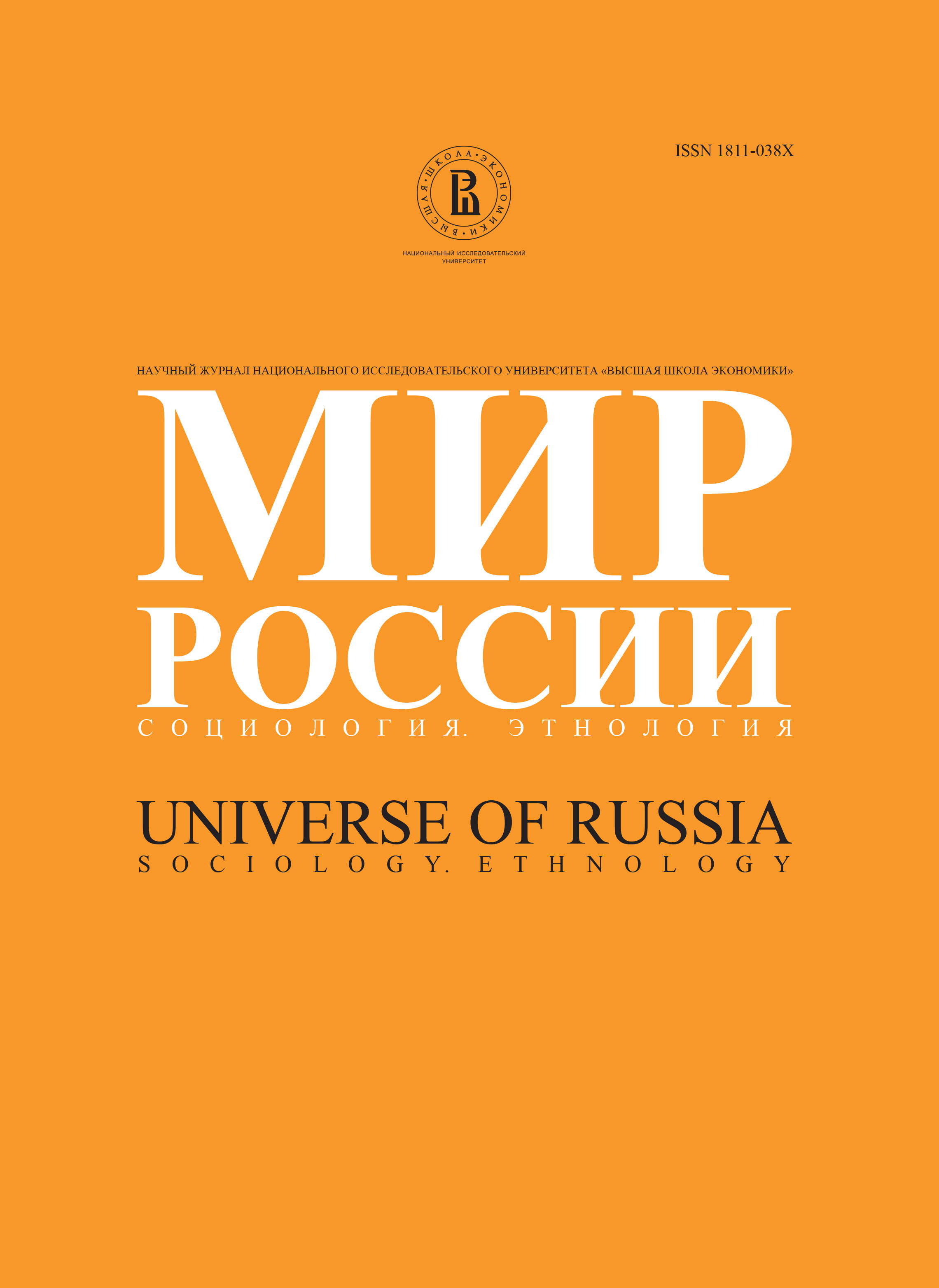Trust as an Element of Social Capital in Contemporary Russia (a comparative analysis)
Abstract
Masami Sasaki — Professor of Sociology, University of Chuo (Tokyo). Address: 742-1 Higashinakano Hachioji-shi, Tokyo, 192-0393, Japan. E-mail: masasaki@soc.hyogo-u.ac.jp
Vladimir Davydenko — Head of the Chair for Economic Sociology, Tyumen State University. Address: 10, Semakov St., Tyumen, 625003, Russian Federation. E-mail: vlad_davidenko@mail.ru
Yury Latov — Leading Researcher, Management Academy of the Ministry of Internal Affairs in the Russian Federation. Address: 8, Z. and A. Kosmodemyanskikh St., Moscow, 125171, Russian Federation. E-mail: latov@mail.ru
Garif Romashkin — PhD Student, Tyumen State University. Address: 10, Semakov St., Tyumen, 625003, Russian Federation. E-mail: gr136@mail.ru
The problem of trust has become quite popular since around the mid-1980s among sociologists, first, and economists, afterwards. The high significance of relations of trust has become a key aspect in analyzing social and economic processes. To develop the economy of post-Soviet Russia, one requires not only the rise of nanotechnologies and the accumulation of other purely technological resources, but also to raise the level of trust as a basis of social capital. This explains why the measurement of trust — one of the key indicators of the volume of social capital in a national economy — has become one of the key research problems for both contemporary sociologists and economists.






